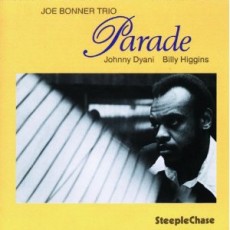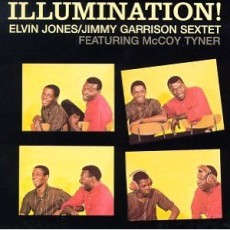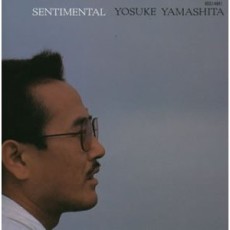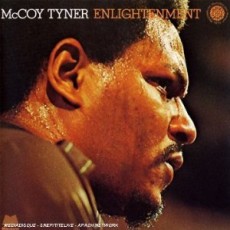
Daily Dose Of Jazz…
Joe Bonner was born on April 20, 1948 in Rocky Mount, North Carolina. He studied and earned a B.S. in Classical Music from Virginia State College in Petersburg. His early influences were McCoy Tyner and Art Tatum but he cites that he learned much from the musicians he worked with in the ‘70s including Freddie Hubbard, Billy Harper, Pharoah Sanders and Roy Haynes, who hired Bonner to replace Chick Corea.
Joe’s musical travels led him to Denmark where he joined or accompanied traveling jazz artists. Bonner has appeared on a long list of recordings as a bandleader or sideman, with titles released on Evidence, Muse, Capri, and ABC/Impulse! He has over a dozen sides out on the Steeplechase label recorded during his twelve-year stint in Europe, especially Copenhagen.
Since the turn of the new century Bonner has put out more fine records as his “Monkisms” and the highly acclaimed “The Art of Jazz Piano” that display his amazing knowledge of jazz piano structure and his ability to navigate the lucid joining of passionate solos, soulful harmonies, driving rhythms and orchestrating spirited improvised journeys into a celebration of rich modern jazz textures, rooted in bebop, gospel and blues.
Pianist Joe Bonner is known for playing hard bop and modal jazz, this enigmatic pianist has become a Denver jazz scene staple, currently leading the jazz quartet, The Bonner Party and for the past two decades has thrilled audiences with his virtuoso sensibility.
More Posts: piano

Daily Dose Of Jazz…
Jimmy Garrison was born on March 3, 1933 in Miami, Florida but grew up in Philadelphia where he learned to play the bass, coming of age during that city’s thriving jazz scene that including McCoy Tyner, Reggie Workman, Henry Grimes and Lee Morgan. He played around Philadelphia with local groups until 1958 when Philly Joe Jones brought him to New York City.
During the time he would freelance with Lennie Tristano, Benny Golson, Bill Evans and Kenny Dorham but got seriously noticed when he joined Ornette Coleman at the Five Spot. Garrison’s long association with Ornette Coleman produced his first recording with him on “Ornette on Tenor” and “Art of the Improvisers”.
Jimmy would go on to play and record with Archie Shepp and Pharoah Sanders but his greatest collaboration was his six-year collaboration with the John Coltrane Quartet when he replaced Reggie Workman. In concert with Trane he would play unaccompanied solos, sometimes as a prelude to a song before the other musicians joined in.
He and drummer Elvin Jones have been credited with eliciting more forceful playing than usual from Coleman on the albums “New York Is Now” and “Love Call”. Before his passing he would play with Kenny Dorham, Curtis Fuller, Jackie McLean, Lee Konitz, Hampton Hawes, Benny Golson and Tony Scott. Bassist Jimmy Garrison passed away on April 7, 1976.
More Posts: bass

Daily Dose Of Jazz…
Yōsuke Yamashita was born February 26, 1942 in Tokyo, Japan. He first began to play piano professionally at the age of 17 in 1959 and attended the Kunitachi College of Music from 1962 to 1967. It was during his college matriculation that he released his first recording in 1963, becoming a pioneer of avant-garde and free jazz.
In 1969, Yosuke formed the Yosuke Yamashita Trio, which has been through various incarnations, each introducing and highlighting the skill of the new member. In the 1980s, Yosuke formed the “New York Trio” with bassist Cecil McBee and drummer Pheeroan akLaff.
In 1994 he was invited to perform at the 50th anniversary concert of the Verve jazz label at Carnegie Hall. Yamashita then moved into film scoring in 1998, scoring “The Girl Of The Silence”, Dr. Akagi”, “Inflatable Sex Doll of the Wastelands” and the Shohei Imamura film “Kanzo Sensei”, earning him the “Minister of Education Award,” amongst others.
As an educator he has been a visiting professor of music at Senzoku Gakuen College of Music, Nagoya University of Arts and the Kunitachi College of Music in addition to published work on improvisation and music. He has been nominated for the Japanese Academy Prize for Outstanding Achievement in Music.
Yōsuke Yamashita, jazz pianist, composer, essayist and writer has been praised by critics for his unique piano style and in 2003 he was conferred the Imperial Medal of Honor by the Japanese government for his contributions to the arts and academia. He continues to perform and record.
More Posts: piano

Daily Dose Of Jazz…
Bobby Jaspar was born February 20, 1926 in Liege, Belgium and at a very young age learned to play piano and clarinet. He later took up the tenor saxophone and flute that became his working instruments. Bobby took his first steps in the jazz world with the Bop Shots band but in 1950, Jaspar moved to Paris, played and recorded with the best musicians of the era and met his future wife, Blossom Dearie.
In 1956, Jaspar was persuaded to try his luck in the U.S. where his reputation in jazz circles had preceded him. He played and recorded with J. J. Johnson, Kenny Burrell, Miles Davis, John Coltrane, Toshiko Akiyoshi, Donald Byrd and many others.
In 1961/1962, Jaspar returned to Europe for a year for a series of concerts and a number of recordings. With his colleague, Belgian guitarist Rene Thomas, they formed a successful quintet and in some sessions, this was expanded to a powerful sextet with American trumpeter Chet Baker.
Bobby Jaspar, tenor saxophonist and flautist of the hard bop and cool jazz genres, died from a heart attack in New York City on February 28, 1963 at age 37.

Daily Dose Of Jazz…
McCoy Tyner was born Alfred McCoy Tyner on December 11, 1938 in Philadelphia, Pennsylvania, the oldest of three children. He was encouraged to study piano by his mother. He began studying the piano at age 13 and within two years, music had become the focal point in his life. His early influences included Bud Powell, a Philadelphia neighbor.
Tyner’s first main exposure came with Benny Golson in 1960, being the first pianist in the Golson/Art Farmer legendary Jazztet. After departing the Jazztet, Tyner replaced Steve Kuhn in John Coltrane’s group the same year during its extended run at the Jazz Gallery. Coltrane had featured one of the McCoy’s compositions, “The Believer”, as early as 1958. He appeared on the saxophonist’s popular recording of “My Favorite Things” for Atlantic Records followed by Live at the Village Vanguard, Ballads, Live at Birdland, Crescent, A Love Supreme and The John Coltrane Quartet Plays on Impulse.
As a leader, Tyner recorded a number of highly influential albums in his own right during and post Coltrane tenure and as a sideman for many of the projects of Impulse and Blue Note. But by 1966, Tyner was rehearsing with a new trio and would now fully embark on his career as a leader. At Blue Note a string of albums were released such as The Real McCoy, Tender Moments, Sahara, Fly With The Wind and Time For Tyner, incorporating different configurations and instruments were utilized like flute, koto, string orchestra, percussion, and harpsichord along with African and Asian elements.
He currently records and has enlisted the talents of Avery Sharpe, Charnett Moffett, Eric Harland, Gerald Cannon, Gary Bartz, Eric Kamau Gravatt. Tyner still records and tours regularly though his schedule has been pared down due to his age.
More Posts: piano


